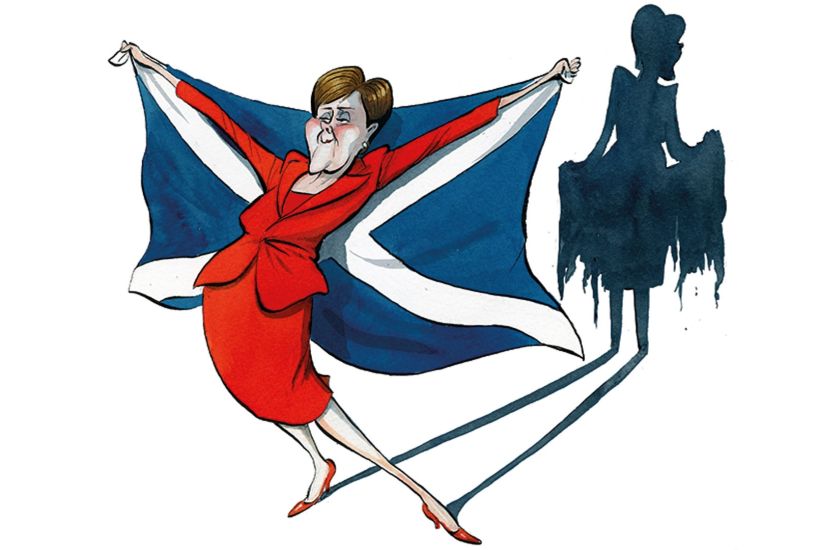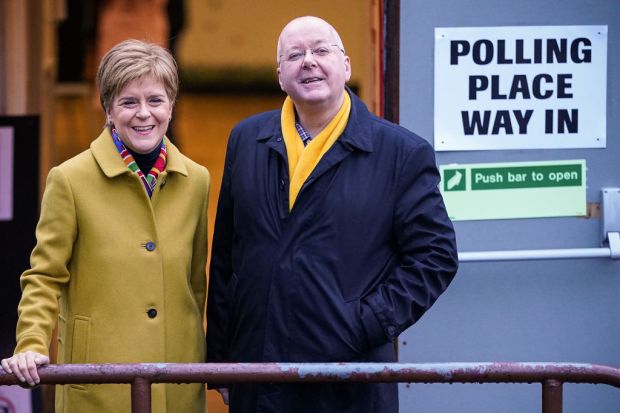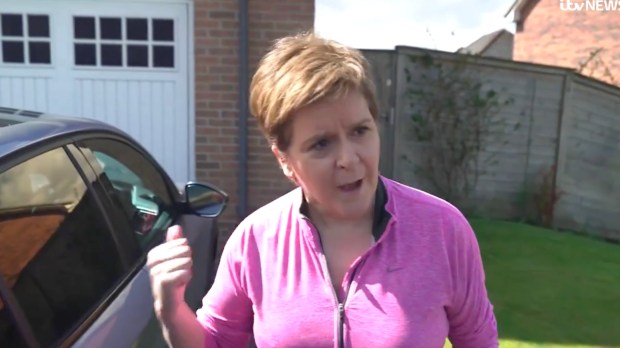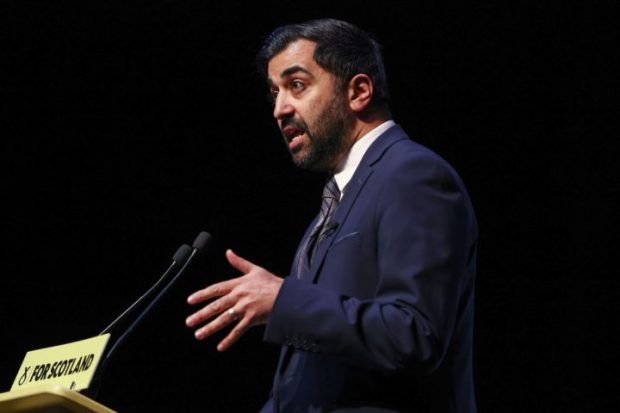The greatest trick an ideologue can ever pull off is convincing people they are not, in fact, an ideologue. But Nicola Sturgeon was just as much an ideologue as her predecessor. In some ways, indeed, her convictions eclipsed Alex Salmond’s.
The country is cleft in two and for all that Sturgeon may now deplore this polarisation she played an outsize part in producing it
Whereas he did not join the SNP until he was an undergraduate at St Andrews university, Sturgeon signed up for the national cause while still a teenager. In all the years which followed, her faith never faltered. Regardless of circumstance, political moment, or fashion, she remained guided by her unfalsifiable conviction that Scotland’s future lay as an independent state. Everything else might change; this never did or even could. Sturgeon was an existential nationalist, not a utilitarian one.
Once fixed, Sturgeon’s mind was rarely shifted or subject to even minor alteration. Her suggestion that it is time to ‘reset the tone and tenor of our discourse’ was palpably self-serving, ignoring her role in creating the rancorous, often irrational, temper of debate in Scotland that she notionally now deplores. Those who cheerfully talk of ‘detesting’ their political opponents are ill-placed to lob rocks at others who, however disgracefully, lower the tone of public discourse. Those who accuse others of ‘denying democracy’ might pay some attention to the beam in their own eye before considering motes elsewhere.
But just as she was made by independence, so Sturgeon has been unmade by it. She has jumped before she was pushed. The plain, stubborn, reality of the matter is that while independence has been normalised as a concept in Scottish politics, the practical delivery of that alternative future remains as far from reach as it was five years ago.
Next month the SNP will hold a special conference to discuss the next phase of the independence campaign. Sturgeon’s proposal to treat the next general election as a ‘de facto referendum’ was a cockamamie ploy when she first announced it and age has not gilded it with any greater respectability since. For the first time, her strategic judgement – often questionable, regardless of her tactical astuteness – was a matter of open discussion within nationalist circles. Parliamentarians on what might be termed the party’s ‘fundamentalist’ and ‘gradualist’ wings reached uncommon agreement that Sturgeon’s scheme could not plausibly deliver the outcome she promised.
Worse than that, in fact, it might very easily set the independence cause back a generation. If the SNP treats the next election as a proxy referendum but fails to secure at least 50 per cent of the vote, their opponents will be wholly entitled to argue that, by their own lights, the SNP had their second referendum and lost it. Goodnight.
Even victory on those terms, however, could not force the issue. At best it could only reiterate the moral weight of the status quo: a nationalist movement with a majority in the Scottish parliament that can not, despite that, impress the fierce urgency of independence upon a people stubbornly resistant to accept its immediate necessity.
For it was not Westminster – itself, of course, a coded word for something else – which was impeding the SNP’s march to national liberation but rather, and tiresomely, the Scottish people themselves. If there was overwhelming support for a referendum – by which I mean consistent 60 per cent plus support for it – such a plebiscite would, at some point, be inevitable. At that point, I hazard that despite all obstacles and difficulties and regardless of the consequences, Scotland would vote for independence.
But we are not there yet and the prospect of a Labour administration in London may yet cool nationalist ardour further. At the very least it may reduce the salience of the national question, if only a little and only for a while.
At bottom, Scotland remains an unsettled land, stuck between an uneasy present and an uncertain future. The country is cleft in two and for all that Sturgeon may now deplore this polarisation she played an outsize part in producing it.
So be it, of course, but for all her gifts and qualities Sturgeon lacked the means to transcend this constitutional divide. This may have been inevitable but it nevertheless means that her time in office ultimately promised more than it delivered.
A new era beckons and the torch may be passed to a new generation. Whomever succeeds Sturgeon will do so at a moment of prime uncertainty. None of her putative replacements enjoys anything like her name recognition and none may realistically expect to match the depth and strength of her connection with a plurality of Scottish voters. In more ways than one, therefore, this is a moment of reset for the SNP and for Scottish politics more generally. For if Nicola Sturgeon could not find a path to independence, what chance does her eventual successor have of doing so on anything like the timetable once promised by Sturgeon herself and demanded by her supporters?
Got something to add? Join the discussion and comment below.
Get 10 issues for just $10
Subscribe to The Spectator Australia today for the next 10 magazine issues, plus full online access, for just $10.





















Comments
Don't miss out
Join the conversation with other Spectator Australia readers. Subscribe to leave a comment.
SUBSCRIBEAlready a subscriber? Log in